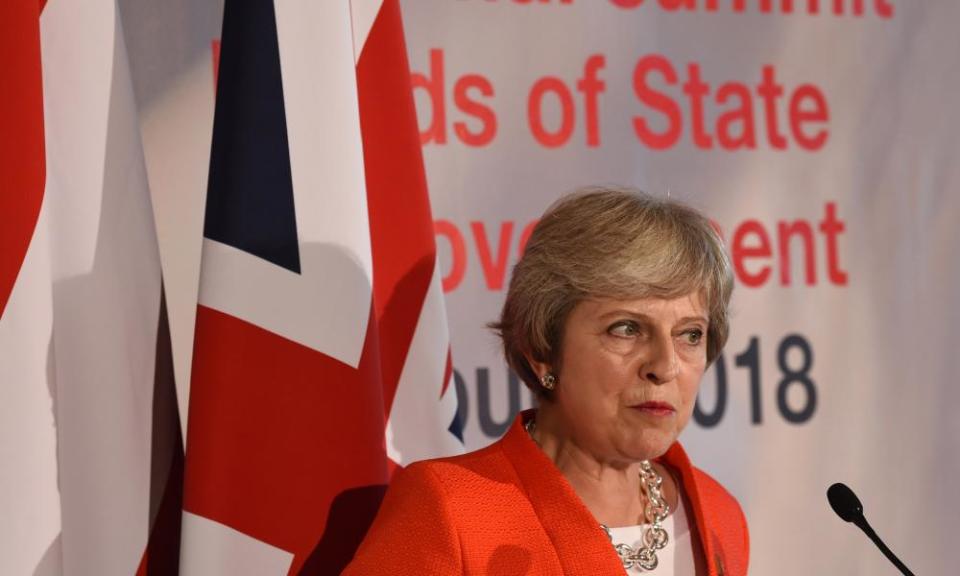The Guardian view on Mrs May’s Chequers plan: dead in Salzburg

The short shrift given to Theresa May’s Chequers plan for Brexit by the president of the European council, Donald Tusk, was a foreseeable and therefore avoidable wounding. It is a personal rebuff to the prime minister, who has staked her reputation on sealing a deal with the European Union on terms she sketched out this summer. Chequers is high-stakes politics: the result of months of bitter internal negotiation which Mrs May has said cannot be deviated from because the alternative is a highly damaging no-deal Brexit. That bluff has been called by Mr Tusk, who said Chequers “will not work”.
Mrs May got 10 minutes to address Europe’s 27 leaders on Wednesday night. The EU plainly has more pressing issues to deal with than Brexit. The EU governments had delegated the substance of talks to the EU’s Brexit negotiator, Michel Barnier, for that reason. A charitable interpretation is that Mrs May was naive to believe she could appeal to European leaders personally, above the head of Mr Barnier. If this was the plan, it did not work. Chequers contains many elements that are unsellable to EU leaders, most obviously that Brexit Britain could not enjoy the benefits of an internal market on goods alone. It was obvious that if this was pressed too hard, the EU would reject it out of hand. In doing so, Mrs May has killed off Chequers in its current form.
As reality bites, more turmoil is in store. Mrs May remains a prisoner, trapped by her party’s divisions, unable to command the Commons, and now it is out in the open that she is at odds with the EU over Brexit terms. She chose, for perhaps internal political reasons, to raise the stakes with Europe – calculating maybe that a showdown would work in her favour. However, her attempt at scripting a drama has been undone by noises offstage: on Thursday there were persistent squeaks from Brexiters that they could scrap EU food standards agreed under Chequers to win a Brexit trade deal with Donald Trump. It is hardly a surprise that European leaders might view this as a negotiation mired in bad faith. Mrs May and the EU both have good reason to ensure that Brexit does not descend into anarchy, but time is running out. The moment of truth for Brexit negotiations will be next month’s European council meeting.
Before then, Mrs May and Brussels will have to find a way of resolving the Northern Ireland border problem. In July, the UK parliament voted through several amendments that contradict the EU’s legal draft of the so-called “Irish backstop”, which suggested Northern Ireland should be treated as part of the European Union’s customs territory. Any such special status for Northern Ireland is viewed by Brexiters as a threat to the unity of the United Kingdom. The obvious solution, which could be sold to the EU, is a customs partnership with the UK. But hard-Brexit delusionists say that future British trade policy cannot be tied down by Europe and have vetoed such sense. Britain could crash out of the European Union because Brexiters are chasing a mirage of a unfettered Britain able to do trade deals.
The danger for Europe’s leaders and those in London is that the break-up could become so much more severe than was desired by either the EU or the UK. Each must be careful not to misread the other’s intentions. Both sides must reflect on what sort of relationship they want and how they could achieve it. Let us hope that in the month ahead Downing Street and Brussels show the sort of wisdom required to ameliorate the error of Brexit without recourse to the bitter rancour that we had all thought the continent of Europe had left behind.

 Yahoo News
Yahoo News 